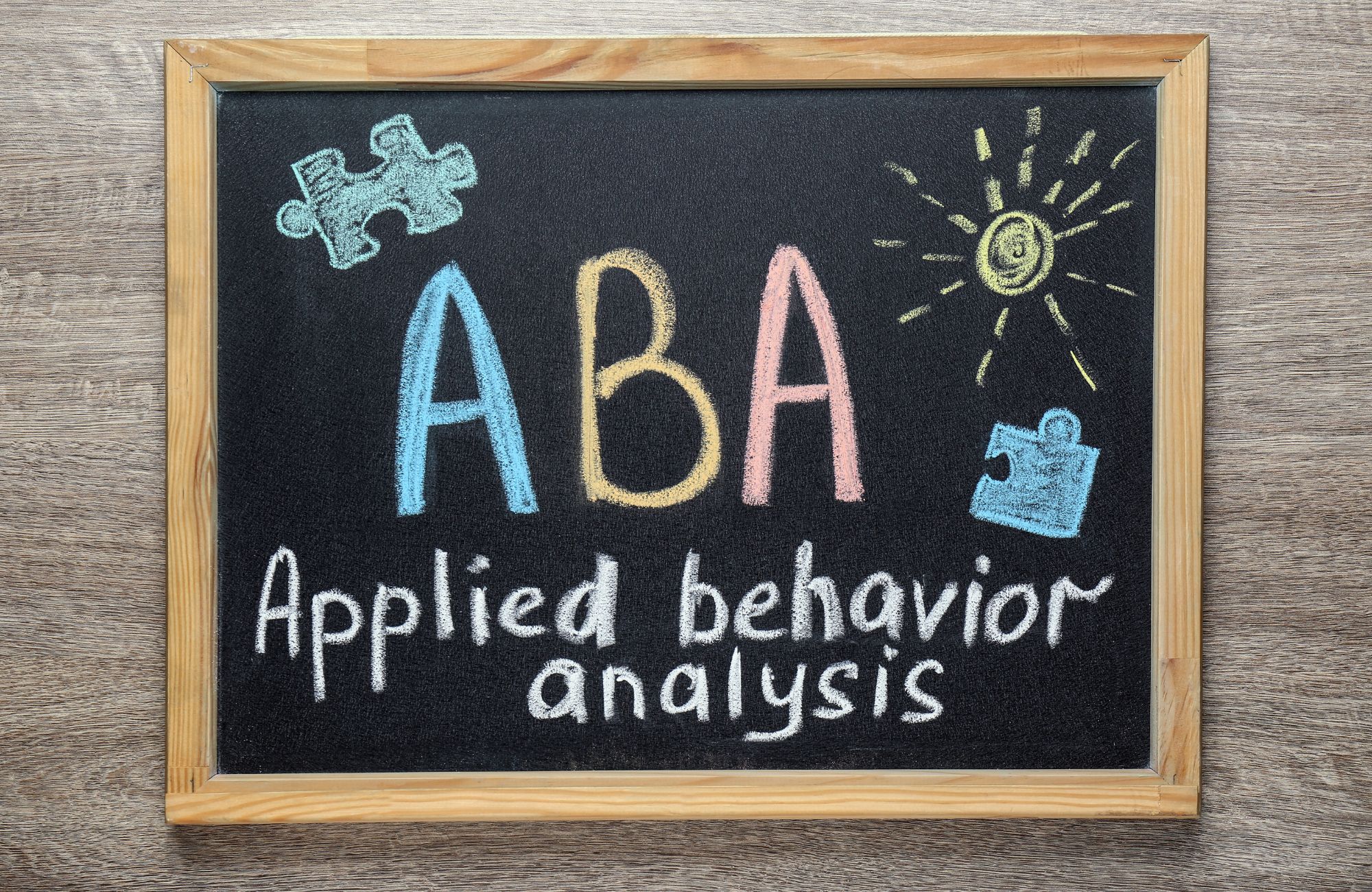Introduction to RBT Certification
Registered Behavior Technicians (RBTs) are critical to the field of Applied Behavior Analysis (ABA), helping individuals with Autism Spectrum Disorder (ASD) and other developmental disorders. The RBT certification, granted by the Behavior Analyst Certification Board (BACB), qualifies individuals to provide direct therapy under the supervision of Board Certified Behavior Analysts (BCBAs). With the average salary for RBTs ranging from $40,000 to $60,000 annually, this profession offers competitive compensation, especially when considering the potential for career growth.
RBT certification salary expectations are important to understand if you’re considering a career in Applied Behavior Analysis. RBTs play a vital role in implementing ABA therapy, working one-on-one with clients to teach new skills and reduce problematic behaviors. In this article, we’ll explore factors influencing earnings and the career path for RBTs, ensuring you’re well-informed about the potential earnings and financial opportunities available in this rewarding field.
Introduction to Behavior Technician Roles
The role of a Registered Behavior Technician (RBT) is a vital one, providing critical support to individuals with behavioral challenges, particularly those with Autism Spectrum Disorder (ASD) or other developmental disorders. RBTs work under the supervision of Board Certified Behavior Analysts (BCBAs) to implement Applied Behavior Analysis (ABA) therapy, which is designed to improve the well-being and quality of life of their clients. As the demand for ABA services continues to grow, so does the need for skilled RBTs. Understanding the average salary and factors influencing RBT salaries is essential for individuals considering a career in this field.
Understanding the Average RBT Salary
The average RBT salary in the United States is approximately $54,000 per year, according to recent labor statistics. However, this figure can vary significantly based on factors such as geographic location, experience, education level, and the specific employer. For instance, RBTs working in urban areas tend to command higher salaries compared to those working in rural areas, due to the higher cost of living. Additionally, experienced RBTs can earn significantly higher salaries, with some exceeding $66,000 per year.
Certification Requirements for RBTs
The Behavior Analyst Certification Board (BACB) plays a significant role in regulating the RBT profession, and obtaining certification is a crucial step for those seeking to become RBTs. To become an RBT, one typically needs to have a high school diploma, complete a 40-hour training course, and pass a competency assessment and certification exam. Advanced degrees or additional certifications can also lead to higher salaries and greater career advancement opportunities.
Factors Affecting RBT Salaries
RBT salaries can vary widely depending on the specific job and location. For example, entry-level RBT salaries may start at around $47,000 per year, while experienced RBTs can earn upwards of $66,000 per year. The average job growth rate for RBTs is expected to be 12% to 22% over the next 10 years, which is significantly higher than the average job growth rate for all occupations. This growth is driven by the increasing demand for ABA services and the vital role that RBTs play in delivering these services.
Salary Expectations Based on Experience and Location
In terms of salary expectations, RBTs can expect to earn an average annual salary ranging from $40,000 to over $60,000, depending on their level of experience, education, and location. The top-paying states for RBTs include Hawaii, California, and New York, which offer average salaries ranging from $54,000 to over $60,000 per year. However, it’s essential to consider the cost of living in these states, as well as other factors that can influence salary potential, such as the specific employer and the level of demand for RBT services.
The Promising Future of the RBT Profession
Overall, a career as an RBT can be highly rewarding, both financially and personally. With the right education, training, and experience, RBTs can earn competitive salaries and enjoy a high level of job satisfaction, knowing that they are making a positive impact on the lives of their clients. As the demand for ABA services continues to grow, the career opportunities for RBTs are expected to expand, offering a promising future for those in this field.
Understanding RBT Salaries
What is the Average RBT Salary?
The average salary for Registered Behavior Technicians (RBTs) in the United States is approximately $54,000 per year. However, the actual salary can vary widely based on several key factors, including geographic location, experience, and educational background. Entry-level RBTs typically earn between $30,000 and $40,000, while more experienced RBTs or those in specialized fields can earn higher salaries. Specific salary ranges for RBTs can fluctuate significantly depending on local job markets and specific employment conditions.
Factors such as local demand for behavioral services, the cost of living in a region, and the specific setting in which an RBT works all play one of the biggest factors in determining salary expectations. As an RBT gains experience and credentials, their earning potential increases, making this profession a rewarding career choice for those passionate about working with individuals with autism and developmental disorders.
Factors Influencing RBT Salaries
Several factors vary depending on the average RBT salary, shaping how much you can expect to earn based on your specific circumstances. Understanding these other factors can help you make informed decisions about your career and earnings potential.
Geographic Location
Different regions are one of the most significant factors in determining RBT salaries. Areas with a higher cost of living typically offer higher salaries to compensate for increased expenses. For instance, urban areas and states with high demand for ABA services, such as California, New York, and Hawaii, often have higher salaries for RBTs compared to rural areas.
Top Paying States for RBTs
- California: $55,000 – $75,000 per year
- New York: $50,000 – $70,000 per year
- Hawaii: $60,000 – $70,000 per year
Salaries in urban areas are also generally higher due to the increased demand for ABA therapy services, while rural regions may offer lower compensation due to less competition and demand.
Experience Level
Experience plays a crucial role in determining RBT salary growth, as RBTs with greater experience tend to earn higher salaries due to their ability to handle more complex cases and their enhanced understanding of working with individuals with autism and other developmental disabilities. Entry-level RBTs typically start at the lower end of the salary range, earning $30,000 to $40,000 annually. As an RBT gains experience, they can expect higher earnings.
- 0-2 Years: $30,000 – $40,000
- 2-5 Years: $40,000 – $60,000
- 5-10 Years: $60,000 – $80,000
Education and Certifications
Education and additional certifications significantly affect salary expectations for RBTs. While the RBT certification itself is a foundational credential, higher education, such as a bachelor’s degree in Psychology or Applied Behavior Analysis (ABA), and further certifications like the BCBA (Board Certified Behavior Analyst), can lead to higher salaries and more career opportunities.
RBTs who pursue a Master’s degree or additional certifications gain specialized knowledge that makes them more competitive in the job market, often resulting in RBTs who earn significantly higher earnings.
Salary Ranges for RBTs
Entry-level salaries for Registered Behavior Technicians (RBTs) can vary based on experience, location, and job setting. Newly qualified professionals can expect to earn between $30,000 and $40,000 annually, with variations influenced by geographical location and cost of living adjustments. The following salary ranges provide a general overview of what to expect:
Salary Ranges by Experience and Location
- Entry-Level RBTs: $25,000 – $40,000 per year
- Mid-Level RBTs (2-5 years of experience): $40,000 – $60,000 per year
- Experienced RBTs (5-10 years of experience): $60,000 – $80,000 per year
Hourly rates for RBTs can range from approximately $15 to over $26 per hour, depending on geographic location, experience levels, and specific job settings.
The highest-paid RBTs often work in specialized fields, such as pediatric therapy or hospital settings, or in areas with a higher demand for ABA services, such as California, New York, or Hawaii.
Job Growth for RBTs
The job growth rate for RBTs is expected to be between 12% and 22% over the next 10 years, which indicates strong demand for RBT services. As more children and adults are diagnosed with autism spectrum disorder (ASD) and other developmental disabilities, the need for qualified behavior technicians is expected to grow, further improving salary potential and career opportunities.
RBTs gain significant salary progression at various stages of their careers, with earnings increasing as they gain more experience. Entry-level RBTs can expect to start at a certain salary range, which grows as they move to mid-level and experienced positions, highlighting the financial growth opportunities in the field.
Career Advancement for RBTs
An RBT career offers numerous opportunities for advancement, leading to higher salaries and more career opportunities. With experience and additional education, RBTs can transition into higher-paying roles or pursue further qualifications.
A better understanding of the field, gained through experience and knowledge, is crucial for effectively supporting individuals with autism and other developmental disabilities, and for navigating regional variances in salary influenced by factors like cost of living and demand for services.
Possible Career Paths for RBTs
- BCBA (Board Certified Behavior Analyst): With additional training and certification, an RBT can become a BCBA, significantly increasing their salary and responsibilities.
- Supervisory Roles: Experienced RBTs may move into supervisory positions, overseeing other RBTs and behavior technicians.
- Specialized Roles: RBTs can also specialize in areas such as pediatric therapy or adult behavioral therapy, where they may earn higher salaries due to the complexity of the cases they handle.
Additional education, such as a Master’s degree in ABA, can lead to new career opportunities, such as working as a senior therapist or clinical director, roles that are typically associated with higher pay and more responsibilities.
Industry and Salary
Regional differences can significantly impact RBT salaries, with geographic location influencing compensation rates. The industry in which an RBT works can also significantly impact their salary. RBTs working in hospitals, state government, or private practices typically earn more than those working in schools or non-profit organizations.
RBTs who work in settings with a high demand for services or who work with clients who have complex or high-needs behavioral challenges can also command higher salaries.
Benefits and Bonuses
In addition to their salary, RBTs often receive various benefits and bonuses, which can significantly increase their total compensation. These benefits may include:
- Health insurance and retirement plans
- Paid time off (PTO) and sick leave
- Performance-based bonuses, including sign-on bonuses or annual incentives
An RBT’s salary is influenced by geographical location, with certain states offering higher salaries due to demand. It’s also important to consider the cost of living, experience, and type of employer, as these factors can affect an RBT’s earning potential.
Some employers also offer performance bonuses, which can further boost an RBT’s salary.
Conclusion
RBTs have the opportunity to earn competitive salaries, with potential for growth as they gain experience and advance in their careers. The average salary for RBTs falls between $40,000 and $60,000 annually, but with factors such as location, experience, and education, salaries can vary significantly based on these factors. RBTs who work in high-demand areas or who pursue further certifications can significantly increase their earning potential. The demand for RBTs is expected to continue growing, making it a promising career choice with strong job security and opportunities for career advancement.
At Affinity ABC, we understand the value of Registered Behavior Technicians (RBTs) in making a difference in the lives of individuals with Autism Spectrum Disorder (ASD). If you’re interested in pursuing a career as an RBT, our team is here to support your journey with the best training, certification resources, and career guidance. Whether you’re starting your RBT journey or looking to enhance your skills, contact us today to learn how we can help you advance your career in ABA therapy.
FAQs
Where do RBTs get paid the most?
RBTs tend to earn the most in high-demand states like California, New York, and Hawaii due to the higher cost of living and the increased demand for ABA services. Urban areas also typically offer higher salaries compared to rural regions.
Can you make good money as an RBT?
Yes, experienced RBTs, particularly those with advanced degrees or certifications, can earn competitive salaries. The highest-paid RBTs, often in specialized roles, can make upwards of $80,000 annually.
Is an RBT a therapist?
An RBT is not a licensed therapist, but they work under the supervision of a BCBA to implement ABA therapy and provide direct care to clients. They assist in teaching new skills and managing behavior, making them an integral part of the therapy process.
What is the career path for an RBT?
RBTs can advance to positions such as BCBA, clinical supervisor, or senior therapist. With further education and certifications, they can explore leadership roles or specialize in areas like pediatric or adult therapy, all of which offer higher salaries.









